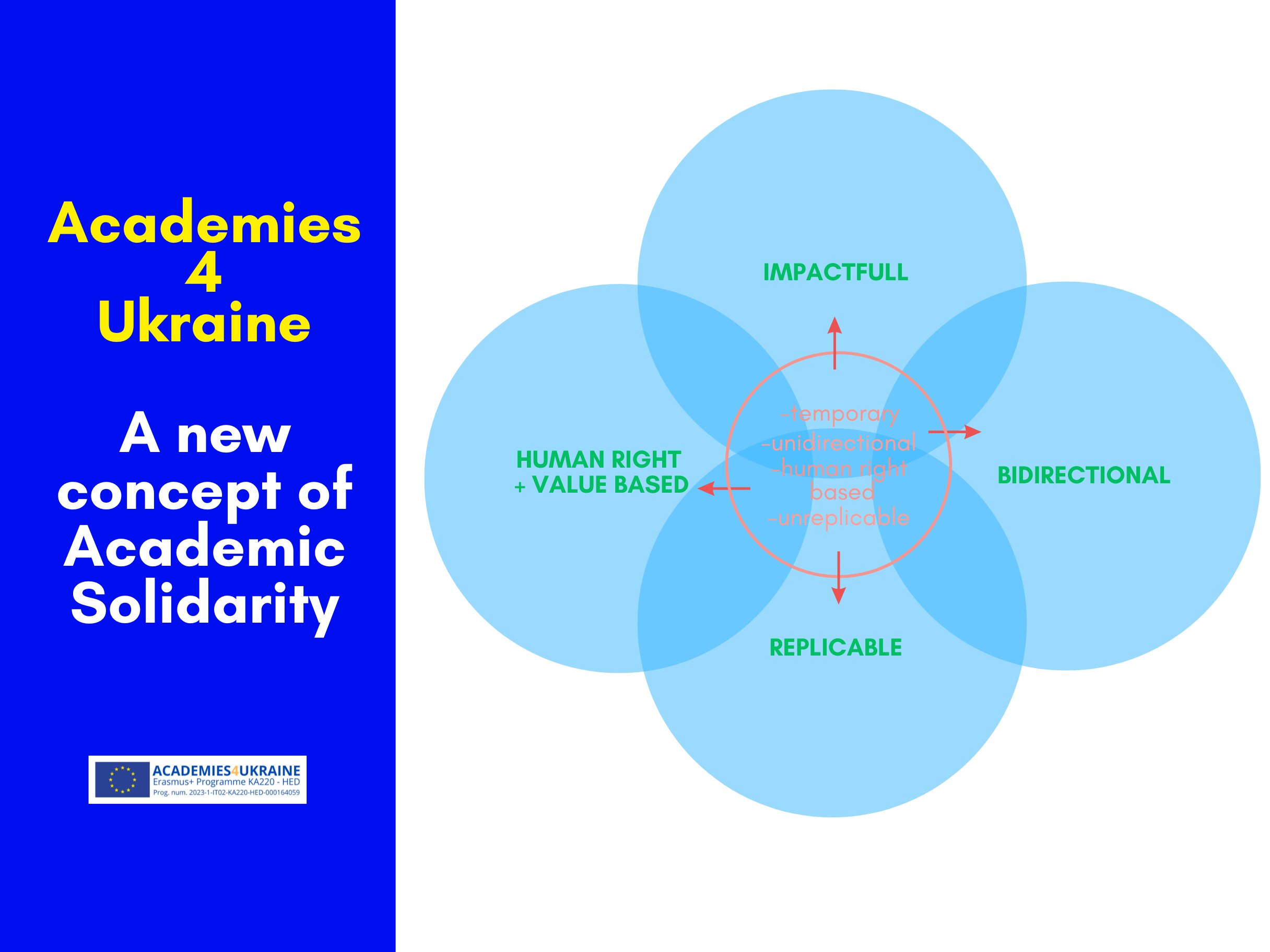One of the academic solidarity definitions consists of the support tools that international academic networks offer for assisting academicians under oppression because victims, in their home countries or abroad, of persecution, purges, anti-democratic practices or forced to flee due to war [Çelik, 2023]. In this direction, Visiting “scholars at risk” fellowships, PhD/Postdoc opportunities, free accommodation and enrolment in university courses, language courses, academic tax reduction and psychological support for refugees have been the most common measures adopted by the European universities in 2022 under the academic solidarity initiatives towards Ukraine [1]. Significant measures to guarantee concrete support for students and researchers fall into a helpless situation, allowing them to pursue their careers and studies otherwise compromised by the war. Nevertheless, after the emergency phase, the host universities experienced difficulties providing further funding for additional aid or permanent positions. Being aware of this risk, we conceived the Academies4Ukraine EU project – funded by the Erasmus+ programme in 2023 – with a different approach. A new academic solidarity perspective based on four pillars:
- Reciprocal. We need to overcome a unidirectional and sometimes paternalistic vision of academic solidarity, in which one side provides aid (for a limited time), and the other part will merely receive it. The aim is to create a new academic solidarity approach, more equal and proactive, in which, because facing firsthand the dramatic dangers and challenges of academic life during a war, Ukrainian universities will guide the European Union in understanding how to face future crises affecting educational rights. A vision where academic solidarity policies are implemented not top-down but actively co-designed by scholars, students and universities who directly experienced academic life under crises.
- Replicable. Even if implemented in a specific context and time, Academies4Ukraine has the ambition to be a replicable practice in terms of: 1) a new conceptual framework of academic solidarity and relates policy recommendations toward future crises that affect educational rights in the European Union and abroad; 2) guidelines for introducing academic services as a result of the implemented successful practices; 3) academic solidary concept out of its traditional ethical border and individual moral obligation toward a more broader social and economic impact.
- Value-based. Academic solidarity as protection and support of academic freedom and educational rights is a crucial initiative to defend the universal value of human rights. Besides human rights defence, we believe in an Academic solidarity that also promotes common values. In Academies4Ukraine, that conveys: i) condemnation of the Russian war aggression toward Ukraine, a sovereign and autonomous state, in violation of international law; ii) solidarity toward Ukrainian researchers, students and universities who have seen compromised their educational rights and academic freedom because of war; iii) defence of Ukraine liberty, European values and democracies against anti-liberal and authoritarian regimes.
Gianluca Vagnarelli – Founder i-strategies
[1] Emergenza Ucraina | Ministero dell’Università e della Ricerca (mur.gov.it)
